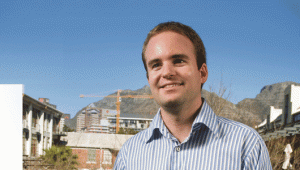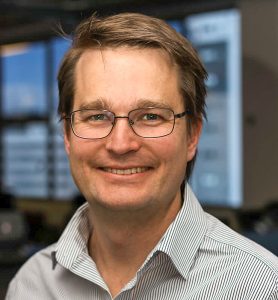TechInAfrica – If you are a South African tech startup in search of a venture capital, who would you have in mind?
In recent years, the venture capital sector of South Arica had been growing to a substantial degree, hitting more than R1-billion investment for startups and early-stage companies in 2017, as a report by the Southern African Venture Capital and Private Equity Association’s (Savca) revealed last year.
The growing amount of VC funding in SA has closely tracked the growth in tech startups that often attract funding for their ability to scale quickly.
According to a series of surveys by Ventureburn in 2017 and 2018, Johannesburg is swiftly catching up to Cape Town, in which from early 2000s hold the title as the capital of South Africa’s startup and while it’s still home to some of the brand names in South Africa’s tech startups, the era is witnessing the rise of fintech and more evident black entrepreneurs’ participation in tech. The development of venture capital funding in South Africa has followed the growth in tech startups that consistently attract funding for their ability to quickly scale up rapidly.
The growth of the venture capital sector can be attributed to the number of new tech funds being set up thanks to amendments in recent years in accord to a 2009 venture capital tax incentive, Section 12J of the Income Tax Act. Still, the capital investments have mostly gone into the property, private equity or renewable energy sectors.
One of the exciting new developments goes into SA SME Fund. The company manages to land a fund bundling a mandate of investing to black-owned companies, and often the cases, these are tech startups. The R1.4 billion fund draws its contributions from several companies that are listed, with the Public Investment Corporation (PIC) that oversees the government pensions.
Let us now see the round-up of the figures that are playing significant roles in the venture capital sector in the country. Here are the 6 South African’s venture capitalists to be reckoned with:
Justin Stanford (4Di Capital)
Justin Stanford is one of the veterans in the venture capital sector in South Africa. From early 2000’s, Stanford had been putting investment in the tech startups, such as Snapt, Aerobotics, Lumkani, LifeQ, as well as exits in the likes of Skyrove and Mortribe, which was acquired by MXit at the time, as well as for some startups from East Africa, before coalescing his experience into 4Di Capital with a group of fellow venture capitalists.
Stanford’s venture capitalist pursue began when he decided to quit high school to focus on nurturing his interest in tech entrepreneurial from the late 90’s. After Stanford’s many attempts, he managed to build an online pan-African cybersecurity software company at the beginning of 2000’s, becoming a reseller for the Slovakian security specialist firm, ESET. Ever since then, he had partially exited the reseller business, and on the year of 2009, he and his colleague, Vinny Lingham, a Silicon Valley-based South Africa’s entrepreneur, set up the startup initiative in Cape Town called Silicon Cape.
“We became early angel investors in young tech startups in the very nascent local SA ecosystem starting around 2004, and I’ve angel invested in dozens of companies since, but at the time that led us to begin visiting Silicon Valley in the mid-2000s.”
Stanford became the early angel investors in youth tech startups, in the very nascent local South Africa’s ecosystem starting around 2004, and he has since angel invested in dozens of companies, at the time, leading he and Lingham to begin their visit to Silicon Valley in that midst of 2000’s, He noted, and continued, this ultimately spurred them into creating and launching the Silicon Cape Initiative in 2009, aimed at catalyzing the ecosystem in South Africa and promoting the idea of the possibility of a ‘Silicon Valley in Africa’.

They started the initial experiments that would later become 4Di Capital, a company with the objective to formalize their investing activities, creating a real Silicon Valley-inspired venture capital firm in its early stage, which was officially launched the first fund in 2011. After launching its second fund in 2016, the company continued with its third fund in 2019, with the capital from South Africa’s SME Fund.
It wasn’t always easy for Stanford when he thought back about his venture capitalist’s journey. When he looked back on those 15 years, he believed that it was due to his success as an entrepreneur that he probably gained the knowledge and experience needed to become a successful tech investor. But then the truth wasn’t quite close. Since it’s an entirely new and different discipline, it took a long time, with that many mistakes to truly and deeply learn, like any specialist trade.
But Stanford wasn’t only keen on tech firms’ investment. When not investing, he enjoys the active life of boating and watersports, mountain biking, braais’ in the bush, playing guitar, film, and audio, and in anything that have to do engines or either a mechanical or design element, such as aircraft, architecture and interiors, and not to mention, cars.
Keet Van Zyl (Knife Capital)
Before founding Knife Capital with Anthea Bohmert in 2010 and serving as a managing partner together with Bohmert, venture capital’s veteran Keet van Zyl helped structure various private equity funds in Southern Africa for a US fund-of-funds investor. He had also worked for companies such as Procter & Gamble, Investec and Mark Shuttleworth’s “Here Be Dragons” (HBD) Venture Capital, which was the leading companies in the industrial sector. Van Zyl is also listed on Savca’s board.
Van Zyl noted that Knife Capital has been doing well, by having an amazing deal flow, but the key challenge for the moment is where to land their feet on the next opportunities. The company is currently eyeing an edtech space for future investment. “It should be announced soon, with likely one more closing later this year.”

The company made investment via a board of funding partnerships; including a Sars section 12J Venture Capital Company, KNF Ventures, and few family offices. In 2017, the venture capital set up a UK-based office which is managed by Bob Skinstad, a former Springbok rugby player. Knife capital’s current investment is planted on Swedish tech firm MOST, PharmaScount, DataProphet, and also Quicket.
Other than their myriad investment, through its Grindstone Accelerator, in which its fifth cohort was recently launched, the company builds a high-growth technology-enabled SME’s, aiming to fill critical gaps spotted on the ecosystem of local entrepreneurial by delving through the development initiatives of education and enterprise.
The seven companies in which Knife Capital took over and managed made up part of the R150-million HBD Fund and the company has since exited from all these seven companies, which are consisted of CSense, Fundamo, Clicks2Customers, Moyo restaurant group, SA Cab, FlightScope and orderTalk.
As a trained accountant with an MBA, the intellectual property law qualified veteran lookup for another cracker of a year for the venture capital he manages. As the season of summer is en route, Van Zyl will be likely to celebrate it by either cruising around the Cape Winelands and its coastline on his Harley Davidson, or probably goes on a surfing trip with his wife and two young daughters.
Paul Cook (Silvertree Holdings)
As a former management consultant, South Africa’s veteran investor Paul Cook founded Silvetree Holdings back in 2013 with Manuel Koser, a former head of Zando, a Rocket Internet online fashion retailer, and with Petter Allerstorfer, in which both sharing the position of managing director with Cook.
As one of the veterans in the South Africa’s tech scene, Cook, who did his Ph.D. in Theoretical Physics at Los Angeles’ Caltech, runs his management consultant and focus on pan-Africa strategy, public and private sector, and also co-founded plus headed a small tech startup.
Since 2013, Silvertree Holdings has invested in at least 12 firms, and other firms such as Pricecheck, CompareGuru, Ucook, and Carzar.
According to the company’s planned listing in 2023, it has been busy buying up companies here and there, from last year’s November, consigning some of the founders to mere operators of the businesses they once founded, and not everyone is all happy about this situation.

Koser deemed Silvertree’s approach to the business is fostering the co-entrepreneurs. To Ventureburn, Koser informed that last year in August, the company looks to take a stake of 30% to 90% in the companies they invested in, and the stake has eventually driven an increase to 100%, and he added that shareholders will still enjoy the minority rights.
Cook updated on Silvertree, in that it has been on the go for the moment, having signed three term sheets in the last few weeks, and he expected to announce the details as soon as the legal inquiries are finished.
In his leisure time, the managing director enjoys reading history and economics book and sometimes would hike, but in the current time, Cook is putting his utmost focus on his children during the day off.
Clive Butkow (Kalon Venture Partners)
Clive Butkow, who took a computer science and applied maths degree from Wits University, is the new kid on the block in Gauteng for venture capital investment in tech startups. Since the launch of his Kalon Venture Partners, the company has been investing in several tech startups, from Ozow, which is formerly j-Pay, netted funding from an investor in June, SnapnSave, including FinChatBot.
The company is a registered Section 12J VC company, through which investors that invested can get a tax deduction.
Described himself as being an entrepreneur from as the early age of 8, Butkow joined Accenture, or formerly known as Arthur Sanderson, for 2 years after he graduated from university. At the time, he didn’t opt for building his own tech business. Throughout the years, he received abundant experiences by being crowned for many leadership positions. Butkow was the company’s acting COO, and that before he finally retired nearing the end of 2012.

During his Accenture voyage, Butkow was granted the opportunity to work on a global scale, building tech businesses such as Silicon Valley and for other entrepreneurial ecosystems. This experience led him to view venture capital as something that he could on his own, from scratch, and that made him excited.
As a confessed “fitness freak”, Butkow likes to spend an hour of his day to do boxing. He is also has a thing for sports and revealed that he is a big fan of Manchester United.
Outside his sports outings, Butkow is also boxing hard on the venture capital arena. He said that he’s been closing one deal with another Cape Town-based venture capital.
“We have a very solid pipeline which we should have decided on investing within a month or two from now,” He said.
Gavin Reardon (Kingson Capital)
Gavin Reardon served his days as a CFO for a local financial services businesses after being qualified as a chartered accountant, and that was before he subsequently saw the opportunity that funding startups presented when he was seeking funding for his startup is the first step toward him building Kingston Capital.
“I then saw the opportunity for something far bigger and set out to create a fund that could invest in multiple startups,” Reardon said.
Reardon has always viewed value in what he does, and not excerpting business. He wanted to create values in the business he did, and also, to develop, exploring new things, and being deployed in the world of startups is, to him, “the best of both combinations and something that he very much enjoys”.

Based in Durban, the venture capital fund was founded in 2015 by Reardon, and the fund itself is a registered Section 12J VC company. This allows the company to let investors that invested in the fund to tap on the tax reductions. Kingson has been investing to ten companies, which are among them, Finfind, it’s a matching platform for lenders and businesses that are currently on the lookout for funding, Spazapp, an online ordering system targeted for the informal marketplace, and the latest is Healthcloud, a data aggregator in the healthtech space. These investments were the Kingson Capital’s first fund or Fund One, and in February, the venture capital announced the launching of an R400 million venture capital fund aimed at investing ranging from 30 to 50 tech startups and black-owned small businesses.
Reardon is currently acting as the general partner of Kingson Capital.
Ketso Gordhan (SA SME Fund)
Last but not least, is the new heavyweight creating waves in the venture capital sector. Meet Ketso Gordhan, a former head of PPC Cement that took the helm as the CEO of the SA SME Fund from August 2018, and ever since then, he’s been making grounds on the venture capital scene.
When he was appointed as the new CEO of SA SME Fund, Gordhan revealed his hopes to Ventureburn, in that he wishes to match his experience as a senior government official and private equity and impact investor to the mandate of the SA SME Fund, and this is to create and grow mainly black entrepreneurs and businesses.
The R1.4-billion SA SME Fund is capitalized by 54 JSE-listed firms, which is having grown from 48 who’d committed earlier. The Public Investment Corporation (PIC), which manages government employees’ pension funds, has also approved an R500-million equity funding commitment to the fund. The fund lends and invests via other investment funds, including venture capital funds.
Ventureburn confirmed in November last year that a venture capital deal concluded by Knife Capital’s KNF Ventures earlier in the same month in South Africa healthtech firm, 5nines Technologies, had effectively become the first investment that the SA SME Fund was involved in.

The SME fund revealed that R725-million from the R1.4-million pledged has already been performed with the balance expected to be available by this August, according to a report in March by South Africa business daily’s, Business Day. The newspaper quoted Gordhan saying that by August, the fund is expected to be the “largest” institutional investor in venture capital in South Africa. The total amount of the investment will boost 10 influential black businesses, 200 SMEs, and five black entrepreneurs in the next 5 years.
As a former anti-apartheid activist, Gordhan as previously served the head of private equity at FirstRand close to a decade, and he too, has managed a personal impact investment portfolio with an objective on education in South Africa and Rwanda, while also served as Africa’s advisor for the Omidyar Network. Other past roles of his were, as the head of Africa for the Commonwealth Development Corporation, whereas his job was as the lead for Africa’s investment strategy for the development finance arm of the UK’s government. And among his diverse roles was acting as the first post-apartheid director general for the Ministry of Transport, and serving as the city manager for the City of Johannesburg during 1999 and 2000. With such diverse experiences under his belt, people are expecting Gordhan to do an excellent job as the CEO of SA SME Fund.
Source: Ventureburn.com




